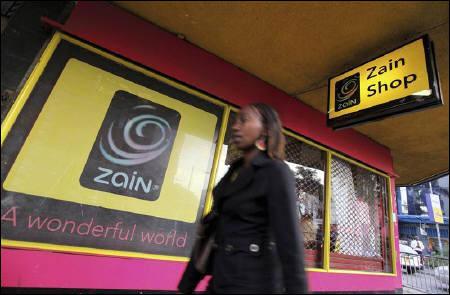 | « Back to article | Print this article |
Bharti's African safari remains a cash guzzler
Sunil Bharti Mittal's dream of moving into the big league of leading telecom companies came at a hefty price - $10.7 billion, the cost of acquiring Zain Telecom's African assets.
Since then, an additional investment of $2.6 bn has increased the debt burden to $13.8 bn. And, this is just one of Mittal's concerns. There is also the strong likelihood of not achieving the targets the company had set after the acquisition.
These include $5 bn revenue from African operations by March 2013, to cross 100 million subscribers (in the continent) at the same time and to increase the Ebitda (earnings before interest, depreciation, tax and amortisation) margin (proportion to total revenue) to 40 by FY2013 from 26 at the time of acquisition. According to the spokesperson, the company has crossed 60 million customers. But the Ebitda margin has improved just marginally, to 27.2.
The main worry: The business will continue to guzzle cash for some more time. By the company's own estimates, it will have to invest another $8.9 bn, as the African market would require an additional 55,000 towers over the next three years to take SIM penetration to 70 per cent.
The issues
What's gone wrong? When Bharti entered the African market, it had banked on a low-cost model - greatly successful in India - to counter competition across 15 countries, including Nigeria, Kenya, Ghana and Congo. But other companies such as MTN, Vodacom and others decided to play the same game.
During its September quarter results, Manoj Kohli, managing director, admitted to facing tough competition in Nigeria; the market leader, MTN, had dropped rates by 30 per cent. However, Bharti Airtel was still gaining market share in Nigeria. "We have achieved leadership position in most African markets," he added.
Till September, Bharti's Africa operations' average revenue per user (Arpu) was $6.4 a month, a year-on-year drop of 12 per cent. The voice Arpu dropped 15 per cent to $5.5 during the quarter, as compared to $6.5 during the same period last year.
Currently, the debt on Bharti's balance sheet is 2.6 times its Ebitda, when the average for the region is 1.1 times. If the ratio crosses 3, bankers will start evaluating Bharti's risk profile for criticality, analysts said.
According to the Bharti spokesperson, the company had reduced net debt to $12.66 bn till September, from $12.95 bn at the time of the Zain acquisition. Its net debt equity ratio has also improved slightly, from 1.38 to 1.35, during the corresponding period. "The cumulative Ebitda for the last nine quarters in Africa is $2.3 bn, which has funded 88 per cent of the additional investments made," he added.
But the huge debt exposure is limiting Bharti's ability to make fresh investments in both the domestic market as well as Africa. How much cash the company can raise further for fresh investments is the question, says a telecom analyst with a management consultancy, who requested anonymity.
It would definitely need cash for the refarming of spectrum in India; this would mean cash infusion for infrastructure enhancement because of its large exposure under the 900 MHz band.
Now & ahead
The company has taken some remedial measures. The sale of group companies Comviva and Centum, and initial public offers for Bharti Infratel and, possibly, Indus Towers would give it some cash.
There is a change in its approach in the African continent as well. It is now strengthening presence in enterprise solutions, data services, third generation services and a pan-African backhaul network to aggregate and carry traffic across multiple countries there.
According to a recent report by credit rating agency Icra, Bharti's Africa operations, which contributed 28 per cent to consolidated revenue, have witnessed improvement in profitability (operating margins improved from 21.8 per cent in FY2011 to 26.6 per cent in FY2012), on the back of subscriber additions and cost-reduction initiatives. But, the performance of Africa operations is lower than the levels estimated earlier, Icra added.
"Bharti's gain in subscriber base in Africa is around 26 per cent, while MTN is growing at around 40 per cent. Under-penetration is an advantage for every telecom operator in Africa. This is a long haul play for Bharti," said Ankita Somani, telecom analyst, Angel Broking.
Selling off its businesses in the low-income countries and concentrating on high Arpu countries such as Nigeria and Kenya could be a solution but Bharti denies any plans to trim the business expansion plans.
With Kohli expected to retire after two years, analysts worry that managing 16 countries and regulators will be the next challenge. For Mittal, it is likely to be a long haul, at least for a few more years.

